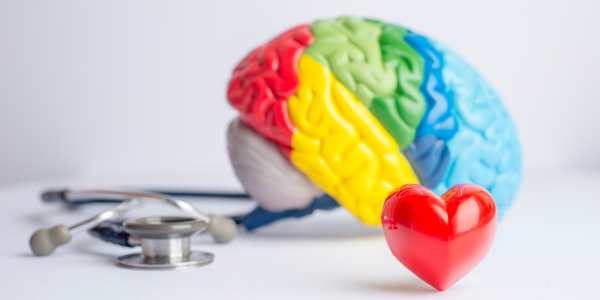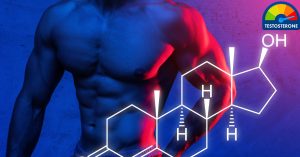Maintaining optimal brain health is essential for enhancing cognitive functions such as memory, focus, and decision-making. Various supplements can support this goal by providing essential nutrients that promote neurological health. Understanding which supplements are the best for brain health can help you make informed decisions to enhance your cognitive longevity and overall well-being.
Omega-3 Fatty Acids: Essential Fats for Brain Health and Function
Omega-3 fatty acids are pivotal for brain health, crucial in building and repairing brain cells. EPA and DHA, types of omega-3 fatty acids, are particularly vital. DHA makes up approximately 8% of the brain’s weight and is critically important for normal brain function and development throughout all stages of life. EPA supports the brain’s response to inflammation. Fish oil supplements, which provide a rich source of these fatty acids, are linked to a lower risk of Alzheimer’s disease and can improve mental focus and cognitive function. For those following plant-based diets, algal oil is an excellent alternative, providing DHA that can directly benefit brain health.
B Vitamins: Cognitive Enhancers
The B vitamins, particularly B6, B9, and B12, are essential for brain health. They help reduce the level of homocysteine in the blood, elevated levels of which are associated with an increased risk of Alzheimer’s disease, dementia, and cognitive decline. Vitamin B12 is also involved in synthesizing brain chemicals and maintaining the myelin sheath, which protects nerves. A deficiency in these vitamins can lead to poor memory, fatigue, and even neurological damage. Supplementing with a B-complex can ensure adequate daily intake, supporting overall brain function and mental energy.
Vitamin D: The “Sunshine” Vitamin for Cognitive Function
Vitamin D receptors are widespread in brain tissue, and this vitamin plays a significant role in maintaining healthy brain function. Low levels of vitamin D have been associated with a higher risk of developing neurodegenerative diseases like Parkinson’s and Alzheimer’s. Supplemental vitamin D is often recommended, especially for individuals with limited exposure to sunlight, as it can help maintain adequate levels which are crucial for neurotransmitter synthesis and nerve growth.
Antioxidants: Vitamins C and E
Vitamins C and E are powerful antioxidants that help combat oxidative stress, a factor that contributes to brain aging and neurodegenerative diseases. Vitamin E, in particular, is known to protect cells from damage by free radicals and supports brain health in the elderly, potentially reducing the risk of Alzheimer’s disease. Vitamin C helps regenerate vitamin E and directly affects cognition and neurotransmitter synthesis. Supplements containing these vitamins can provide protective benefits against oxidative stress and support overall brain health.
Curcumin: A Spice with Potent Cognitive Benefits
Curcumin, the active component of turmeric, has significant anti-inflammatory and antioxidant benefits that make it an excellent supplement for brain health. Clinical studies have shown that curcumin can improve memory and mood in people with mild, age-related memory loss. The challenge with curcumin is its low bioavailability, which means it’s not easily absorbed. Many supplements address this by including piperine, a component of black pepper, which has been shown to increase absorption by up to 2,000%.
Ginkgo Biloba: A Traditional Boost for Brain Circulation
Ginkgo biloba is renowned for its ability to improve blood flow to the brain and enhance cognitive function. It acts by optimizing blood flow and reducing blood viscosity, it also has antioxidant properties that help protect the brain from neuronal damage. It is often used to reduce the risk of dementia and mitigate symptoms of cognitive decline. However, it’s important to use standardized ginkgo extract to ensure a consistent and effective dose in supplements.
Acetyl-L-Carnitine: Enhancing Brain Metabolism and Energy
Acetyl-L-Carnitine has a key role in the metabolism of fatty acids and energy production in the brain. It is known for its potential to increase alertness, improve memory, and help combat various forms of cognitive decline. This supplement is particularly noted for its ability to reduce feelings of brain fog and increase mental clarity, making it a popular choice among older adults looking to preserve brain function and maintain cognitive health.
Resveratrol: A Neuroprotective Compound
Resveratrol is a natural polyphenol found in the skin of red grapes, blueberries, and nuts. It is thought to have neuroprotective properties, which can inhibit the deterioration of dopamine neurons often seen in Parkinson’s disease. Additionally, resveratrol activates the AMPK pathway, which encourages cells to increase energy production and reduce inflammatory responses. Supplements with resveratrol can potentially protect the brain from damage and improve brain function.
Conclusion
Choosing the best supplements for brain health can significantly enhance cognitive function, protect against age-related mental decline, and improve overall mental well-being. It’s essential to consult with a healthcare provider before starting any new supplement regimen, especially to ensure these supplements are safe and appropriate for your individual health needs. Alongside supplementation, a healthy lifestyle that includes diet, exercise, and mental stimulation remains crucial for maintaining brain health.









